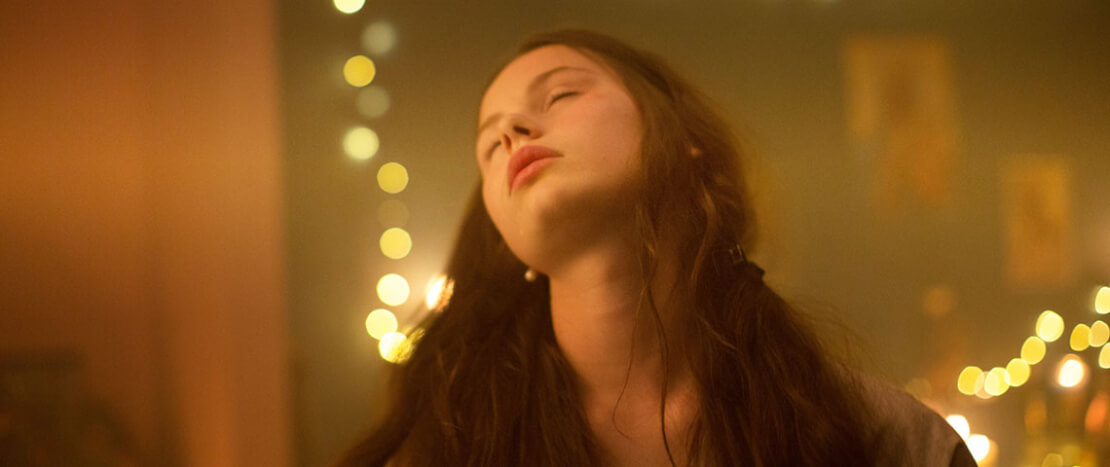Zombi Child
Schoolgirl Fanny (Louise Laneque) is experiencing romantic loss for the first time after her first significant romance. Hit by the amorous aftershocks, she struggles to function at school until she meets new girl Mélissa (Wislanda Louimat) who is from Haiti. Convinced that Mélissa can guide her to a voodoo priestess that can cure her lovesick heart, Fanny entreats Mélissa to help kill her ardour-ous pain. However, as she discovers, such a ceremony can take just as much as it gives…
As a narrative film ‘Zombi Child’ inhabits a nether world of documentary and fiction. Neither exactly one nor the other, each exists purely to serve the other’s existence. Informed by the cultural heritage of Haiti, ‘Zombi Child’ starts out like a documentary, deliberately pausing later on so that a tonally different fiction can then commence.
Whether this is either stylistically intentional or circumstantial as part of the film’s making, ‘Zombi Child’ never makes clear. If anything what is onscreen is a thematic cockerel-fight where one format will presumably subsume the other in a knock-out blow of intention. However, despite Louise Labeque’s pouting Fanny, Wislands’s cryptic Mélissa or Katianna Milfort’s mesmeric Mambo Katy, the plot becomes the loser in a tentative bout of competing ambitions – and I can understand why – because hanging in the purse is a palpable commitment to authenticity.
Whilst ‘Zombi Child’ doesn’t work as an engrossing drama, both the energy and the atmosphere onscreen is quite unique. So, dressed with only with a committed feeling, ‘Zombi Child’ is a movie that walks a critical divide between entertainment and insight.
Not deep enough to call gripping, nor trivial enough to be labelled as lightweight, ‘Zombi Child’ is either a hint of talent to come or a somnambulistic step into the cinematic wilderness.
You’ll have to decide.









